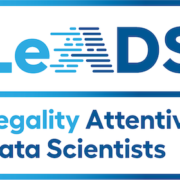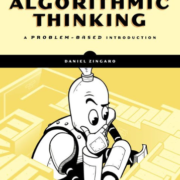ESRs presenting their research at ACM FAccT
ESRs Maciej Zuziak, Onntje Hinrichs and Aizhan Abdrassulova collaborative work got accepted for this years’ ACM conference on Fairness, Accountability, and Transparency (ACM FAccT) that was held in Chicago from 12-15th of June 2023. Maciej Zuziak presented their article on “Data Collaboratives with the Use of Decentralised Learning – an Interdisciplinary Perspective on Data Governance” during a paper session dedicated to Privacy.
 In their collaboration, the ESRs combined their different research interests in law and machine learning, which enabled them to develop an interdisciplinary perspective on challenges posed by different approaches to data governance. The predominant part of the current discussion in EU data policy is centered around the challenging task of creating a data governance framework where data is ‘as open as possible and as closed as necessary’. In their article, the ESRs further elaborate on the concept of data collaboratives powered by decentralised learning techniques as a possible remedy to the shortcomings of existing data governance schemes.
In their collaboration, the ESRs combined their different research interests in law and machine learning, which enabled them to develop an interdisciplinary perspective on challenges posed by different approaches to data governance. The predominant part of the current discussion in EU data policy is centered around the challenging task of creating a data governance framework where data is ‘as open as possible and as closed as necessary’. In their article, the ESRs further elaborate on the concept of data collaboratives powered by decentralised learning techniques as a possible remedy to the shortcomings of existing data governance schemes.
 Data collaboratives have been described as new emerging forms of partnerships where privately held data is made accessible for analysis and where collaboration between participants is facilitated to unlock the public good potential of previously siloed data. [1] They thus fit well the EU policy shift that has taken place over the past years. Whilst for decades, the introduction of exclusive property rights was discussed as a potential tool to empower data subjects with regard to ‘their’ data and to facilitate the emergence of data markets, this changed with the 2020 European Data Strategy. Now, the potential of the data economy should be unlocked by facilitating data access and sharing. The authors presented their concept of data collaboratives powered by decentralised learning techniques, which can be used as a tool to reach the goals of the current EU data strategy: facilitate access to data while protecting privacy and intellectual property interests which individuals and companies might have with regard to ‘their’ data. The collaboration between the ESRs thus reflected the idea behind the LeADS project that solutions to existing tensions in the data economy require an interdisciplinary perspective from both law and data science.
Data collaboratives have been described as new emerging forms of partnerships where privately held data is made accessible for analysis and where collaboration between participants is facilitated to unlock the public good potential of previously siloed data. [1] They thus fit well the EU policy shift that has taken place over the past years. Whilst for decades, the introduction of exclusive property rights was discussed as a potential tool to empower data subjects with regard to ‘their’ data and to facilitate the emergence of data markets, this changed with the 2020 European Data Strategy. Now, the potential of the data economy should be unlocked by facilitating data access and sharing. The authors presented their concept of data collaboratives powered by decentralised learning techniques, which can be used as a tool to reach the goals of the current EU data strategy: facilitate access to data while protecting privacy and intellectual property interests which individuals and companies might have with regard to ‘their’ data. The collaboration between the ESRs thus reflected the idea behind the LeADS project that solutions to existing tensions in the data economy require an interdisciplinary perspective from both law and data science.
The paper can be accessed in the Digital ACM library via this link.
[1] 2020. Wanted: Data Stewards – (Re-) Defining the Roles and Responsibilities of Data Stewards for an Age of Data Collaboration




 Canva
Canva 







